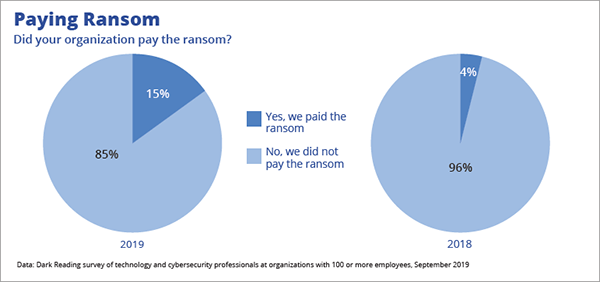Cybersecurity News
7 Free Tools for Better Visibility Into Your Network
 It's hard to protect what you don't know is there. These free tools can help you understand just what it is that you need to protect -- and need to protect yourself from.
It's hard to protect what you don't know is there. These free tools can help you understand just what it is that you need to protect -- and need to protect yourself from.
Rockwell Automation to Buy ICS Security Services Firm
Industrial control systems vendor plans to acquire Avnet Data Security, which provides penetration testing, assessments, training, and managed network and security services for the ICS sector.Mozilla rushes out patch for Firefox zero‑day
The US cybersecurity agency warns that the critical vulnerability could allow attackers to take control of people's computers
The post Mozilla rushes out patch for Firefox zero‑day appeared first on WeLiveSecurity
Mozilla rushes out patch for Firefox zero‑day
The US cybersecurity agency warns that the critical vulnerability could allow attackers to take control of people's computers
The post Mozilla rushes out patch for Firefox zero‑day appeared first on WeLiveSecurity
Travelex customers left in cashless limbo, ICO not formally alerted to data theft claims
The ransomware attack has infuriated stranded customers and the ICO has still not seen an official data breach report.TrickBot Adds Custom, Stealthy Backdoor to its Arsenal
 The PowerTrick backdoor, which fetched yet other backdoors, is designed to help TrickBot evade detection.
The PowerTrick backdoor, which fetched yet other backdoors, is designed to help TrickBot evade detection.
City of Las Vegas said it successfully avoided devastating cyber-attack
Security breach took place on January 7, but the city said it detected the intrusion in time to prevent any damage.Kids and Education
One of the most effective methods you can use to protect kids online is to talk to them. The younger you start talking to them, and they to you, the better. Hold regular conversations about online safety issues, even going so far as to show them actual negative events that have taken place. If you don't know what your kids are doing, simply ask. Play the clueless parent and ask them to show you what the latest technologies are and how they use them. Quite often, kids love the idea of being the teacher and will open up.15% of Ransomware Victims Paid Ransom in 2019, Quadrupling 2018
 Increasing sophistication of ransomware attacks might be forcing victims to open their wallets. Click image to read more.
Increasing sophistication of ransomware attacks might be forcing victims to open their wallets. Click image to read more.
New Iranian data wiper malware hits Bapco, Bahrain's national oil company
Saudi Arabia's cyber-security agency spots new Dustman data-wiping malware.Las Vegas Suffers Cyberattack on First Day of CES
The attack, still under investigation, hit early in the morning of Jan. 7.Drake Lyrics Used as Calling Card in Malware Attack
 A hacker who apparently likes the musician Drake leaves lyrics from the artist's song In My Feelings behind in an attack that delivers malware Lokibot or Azorult.
A hacker who apparently likes the musician Drake leaves lyrics from the artist's song In My Feelings behind in an attack that delivers malware Lokibot or Azorult.
Developers Still Don't Properly Handle Sensitive Data
The top classes of vulnerabilities for 2019 indicate that developers still don't correctly sanitize inputs, nor protect passwords and keys as they should.Operation Goldfish Alpha reduces cryptojacking across Southeast Asia by 78%
Interpol and CERT teams from 10 Southeast Asian countries crack down on hacked MikroTik routers.Mozilla patches Firefox zero-day reported by Qihoo 360
Chinese security firm claims there's also an accompanying Internet Explorer zero-day.Google's Project Zero Policy Change Mandates 90-Day Disclosure
The updated disclosure policy aims to achieve more thorough and improved patch development, Google reports.Man Sentenced in ATM Skimming Conspiracy
 A Romanian national has been sentenced to 5 years in prison after racking up almost $400,000 in an ATM skimming scheme.
A Romanian national has been sentenced to 5 years in prison after racking up almost $400,000 in an ATM skimming scheme.
Google Ditches Patch-Time Bug Disclosure in Favor of 90-Day Policy
 Project Zero vulnerability disclosures will now happen at 90 days, even if a patch becomes available before then.
Project Zero vulnerability disclosures will now happen at 90 days, even if a patch becomes available before then.
CES – Taking a smart city for a test drive
No one has a road map for securing a connected city – but there should be a whole atlas of such maps
The post CES – Taking a smart city for a test drive appeared first on WeLiveSecurity
CES – Taking a smart city for a test drive
No one has a road map for securing a connected city – but there should be a whole atlas of such maps
The post CES – Taking a smart city for a test drive appeared first on WeLiveSecurity
